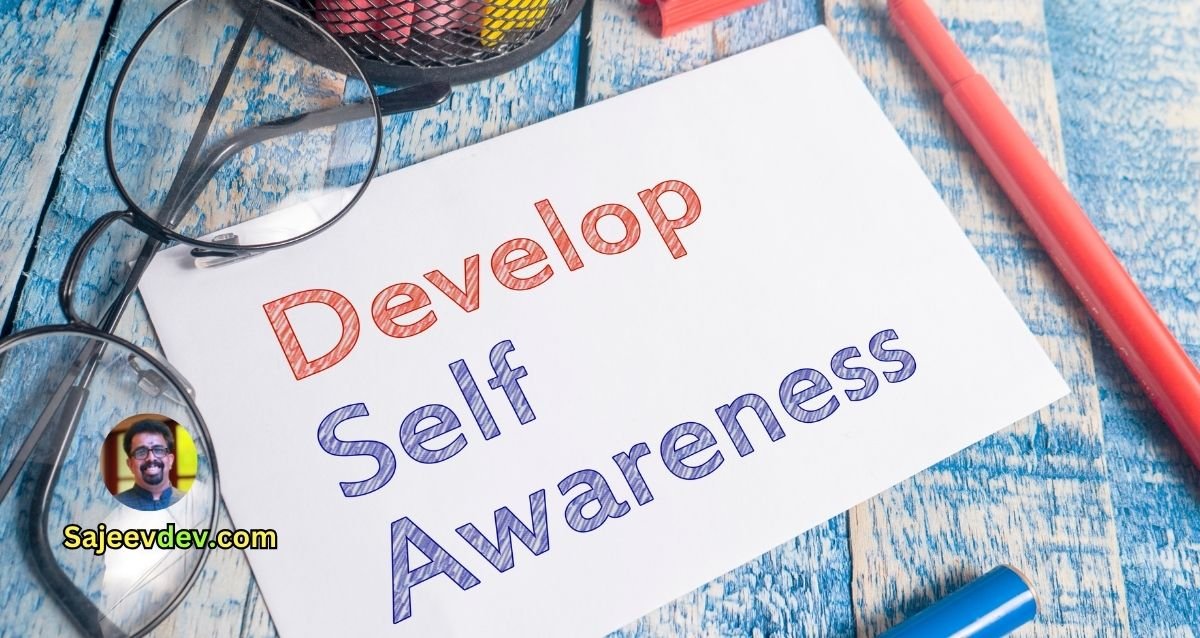Self-awareness is a crucial aspect of personal development and success. It involves having a clear understanding of our strengths, weaknesses, thoughts, and behaviors. One of the most effective ways to enhance self-awareness is through feedback. Feedback provides an external perspective on our actions, behaviors, and performance, helping us understand how others perceive us and identify blind spots we may not be aware of. This article delves into the importance of self-awareness, the role of feedback in enhancing it, and practical steps to effectively utilize feedback for personal growth.
The Importance of Self-Awareness
Self-awareness is the foundation of emotional intelligence and plays a vital role in personal and professional development. It enables us to:
1. Make Better Decisions:
– Understanding our strengths and weaknesses allows us to make informed decisions that align with our goals and values.
2. Improve Relationships:
– Being aware of our behavior and how it affects others helps us build stronger, more empathetic relationships.
3. Enhance Personal Growth:
– Self-awareness encourages continuous learning and development by recognizing areas for improvement.
4. Boost Confidence:
– Knowing our capabilities boosts our confidence and enables us to tackle challenges more effectively.
The Role of Feedback in Enhancing Self-Awareness
Feedback serves as a mirror that reflects our actions and behaviors, providing insights that we might not perceive on our own. Here’s how feedback enhances self-awareness:
1. External Perspective:
– Feedback offers an objective view of our performance from the perspective of others. This external perspective helps us see ourselves as others see us, providing a more rounded understanding of our behavior and its impact.
2. Identifying Blind Spots:
– We all have blind spots—areas where our perceptions and reality don’t align. Feedback helps us identify these blind spots and address them proactively.
3. Validating Self-Perception:
– Receiving feedback can validate our self-perceptions, confirming areas where we excel and where we need improvement. This validation is crucial for accurate self-assessment.
4. Encouraging Reflective Thinking:
– Feedback prompts us to reflect on our actions and behaviors, encouraging a deeper understanding of our motivations and the consequences of our actions.
Practical Steps to Utilize Feedback for Enhancing Self-Awareness
1. Seek Feedback Proactively:
– Don’t wait for feedback to come to you. Actively seek it from colleagues, mentors, friends, and family. Ask for specific feedback on particular areas to gain detailed insights.
2. Be Open and Receptive:
– Approach feedback with an open mind and a willingness to learn. Avoid becoming defensive or dismissive, as this can hinder the feedback’s effectiveness.
3. Listen Actively:
– Pay attention to the feedback without interrupting or justifying your actions. Active listening demonstrates respect for the feedback provider and helps you understand their perspective fully.
4. Reflect on the Feedback:
– Take time to reflect on the feedback you receive. Consider how it aligns with your self-perception and identify any discrepancies. Reflective thinking enhances your understanding of the feedback.
5. Create an Action Plan:
– Develop a plan to address the feedback. Set specific, measurable goals for improvement and outline the steps you will take to achieve them. Having a clear action plan ensures that the feedback leads to tangible growth.
6. Seek Clarification:
– If any part of the feedback is unclear, seek clarification. Ask for examples or further explanation to ensure you fully understand the feedback.
7. Monitor Your Progress:
– Regularly review your progress against the action plan. Adjust your strategies as needed and seek additional feedback to ensure continuous improvement.
Real-Life Examples of Feedback Enhancing Self-Awareness
1. Professional Development:
– Example: A project manager receives feedback that their communication style is often perceived as abrupt by team members. Reflecting on this feedback, the manager attends communication skills workshops, practices active listening, and works on delivering feedback more empathetically. As a result, team morale improves, and the manager’s relationships with team members become more collaborative.
2. Academic Growth:
– Example: A university student receives feedback from a professor about their lack of participation in class discussions. The student, initially unaware of their reticence, starts engaging more in class, asking questions, and contributing to discussions. This increased participation not only enhances their learning experience but also improves their grades and confidence.
3. Personal Relationships:
– Example: An individual receives feedback from a close friend that they often dominate conversations and don’t listen well. Reflecting on this, the individual makes a conscious effort to listen more and speak less, leading to deeper and more meaningful interactions with friends and family.
Enhancing self-awareness through feedback is a powerful tool for personal and professional growth. By seeking, receiving, and reflecting on feedback, we gain valuable insights into our behavior and its impact on others. This increased self-awareness allows us to make better decisions, improve our relationships, and continuously grow. Remember, feedback is not just about identifying areas for improvement but also about recognizing and reinforcing our strengths. By embracing feedback with an open mind and a willingness to learn, we can embark on a journey of continuous self-improvement and success.









